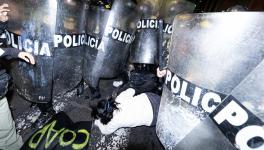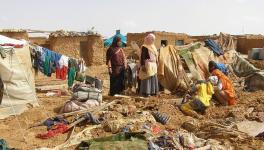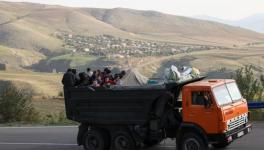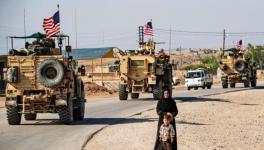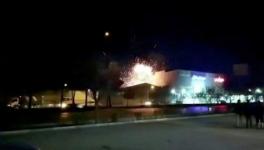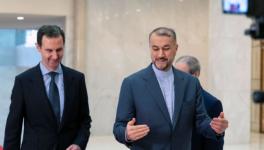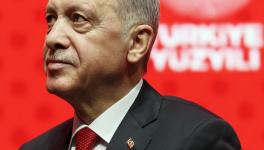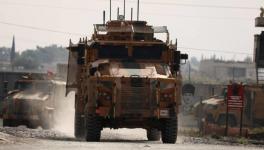Rival Libyan Groups Meet in Morocco to Discuss Peace
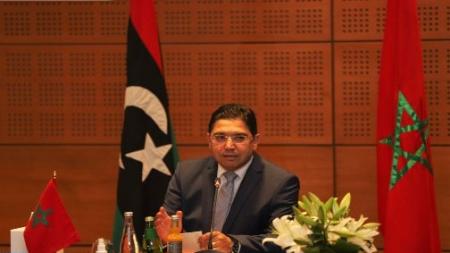
Morocco’s foreign minister chairing the meeting of delegates of rival governments in Libya on Sunday, September 6
Reviving the hope of peace in Libya, a meeting of representatives of the two rival governments began on Sunday, September 6, in Morocco’s coastal town Bouzanika. The objective of the talks, termed “Libyan dialogue,” is to discuss the mechanisms to prolong the ceasefire declared around two weeks ago by both the parties.
Five delegates from each of them — the Government of National Accord based in capital Tripoli and the House of Representatives based in the eastern city of Tobruk — met just a day before the proposed meeting of top leaders from both the governments in Montreux, Switzerland on Monday, Al Jazeera reported.
Moroccan foreign minister Nasser Bourita emphasized that the solution to the Libyan problem must be decided by the Libyans themselves, Maghreb Arabe Press reported. Morocco was also the host of the talks between Libyan parties in 2015 which led to the creation of GNA.
The talks in Montreux are sponsored by the United Nation support mission in Libya (UNSMIL) and the European Union and will include all factions and political groups in Libya. It is expected to decide the fate of the cease fire and nitty-gritty of the proposed elections.
Earlier, Geneal Khalifa Haftar, who is backed by the Tobruk-based parliament, had rejected the announcement of the ceasefire claiming that GNA forces were preparing to attack Sirte. However, it is most likely that he too will be represented in the “Libyan Dialogue.”
Several earlier attempts at peace in the country have failed in the past.
External intervention by different nations supporting different rival factions have further intensified the war.
Despite the UN arms embargo since 2011, both the rival governments have been able to procure weapons and have fought to gain control over major oil producing regions of the country. Khalifa Haftar-led Libyan National Army launched an offensive to seize the capital Tripoli last year. The GNA forces were able to push back Haftar’s forces with Turkish aid and are now trying to exert control over the city of Sirte. This has created a volatile regional situation.
The chaos created by the overthrow and assassination of long-term ruler Muammar Gaddafi in a NATO-led invasion in 2011 resulted in a prolonged war in Libya which has destroyed the political and economic structure of the country causing great suffering for the Libyan people.
This article was first published in Peoples Dispatch.
Get the latest reports & analysis with people's perspective on Protests, movements & deep analytical videos, discussions of the current affairs in your Telegram app. Subscribe to NewsClick's Telegram channel & get Real-Time updates on stories, as they get published on our website.









